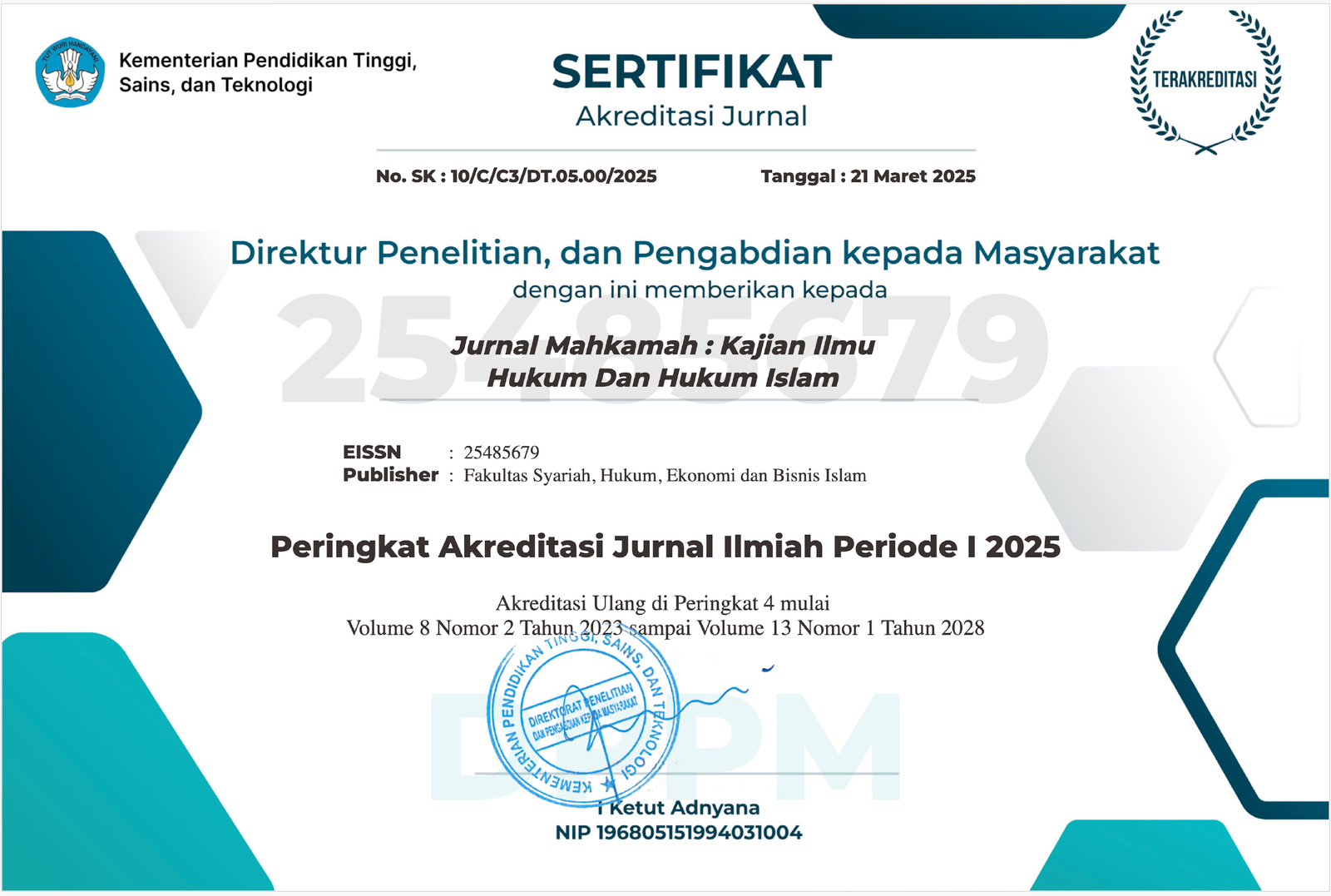The Problems of the Independence of Judicial Power in Indonesia in a Review of Islamic Law
DOI:
https://doi.org/10.25217/jm.v6i2.1896Keywords:
Islamic Law, Independence, Judicial Power, ProlematicsAbstract
Article 24 paragraph 1 of the 1945 Constitution "Judicial power is an independent power to administer justice to uphold law and justice". Will However, Article 24A paragraph 3 makes a provision that candidates for Supreme Court judges are proposed by the Judicial Commission to the DPR for approval and subsequently appointed as Supreme Court justices by the president and the Supreme Court Law states that the appointment of Supreme Court Judges is carried out by the President at the proposal of the DPR or the dismissal of the Chair, Deputy Chairperson. , Junior Chairmen, and Member Judges of the Supreme Court are dismissed by the President at the suggestion of the Supreme Court, so that the President has loopholes that can later affect the psyche of judges in making decisions. This study aims to determine the independence of judicial power in Indonesia in the perspective of Islamic law. This study uses a normative and juridical approach. The authors conclude that the proposal for the appointment and dismissal of Supreme Court judges by the Judicial Commission, the DPR and the President may affect the psychology of a judge in making a decision so that This can eliminate the meaning of Article 24 paragraph 1 of the 1945 Constitution which shows the lack of independence of the judicial power in upholding justice in accordance with the ideals of the 1945 Constitution. Indeed, in the history of the Islamic judiciary, it is the Caliph (President) who has the authority to appoint and dismiss a judge/qhadi. judges have a fear of Allah so that judges decide cases based on Islamic law.
Downloads
Published
How to Cite
Issue
Section
License
This work is licensed under a Creative Commons Attribution-ShareAlike 4.0 International License.
Authors retain copyright and grant the Jurnal Mahkamah : Kajian Ilmu Hukum Dan Hukum Islam right of first publication with the work simultaneously licensed under a Creative Commons Attribution License (CC BY-SA 4.0) that allows others to share (copy and redistribute the material in any medium or format) and adapt (remix, transform, and build upon the material) the work for any purpose, even commercially with an acknowledgment of the work's authorship and initial publication in Jurnal Mahkamah : Kajian Ilmu Hukum Dan Hukum Islam.
Authors are able to enter into separate, additional contractual arrangements for the non-exclusive distribution of the journal's published version of the work (e.g., post it to an institutional repository or publish it in a book), with an acknowledgment of its initial publication in Jurnal Mahkamah : Kajian Ilmu Hukum Dan Hukum Islam.
Authors are permitted and encouraged to post their work online (e.g., in institutional repositories or on their website) prior to and during the submission process, as it can lead to productive exchanges, as well as earlier and greater citation of published work (See The Effect of Open Access).









